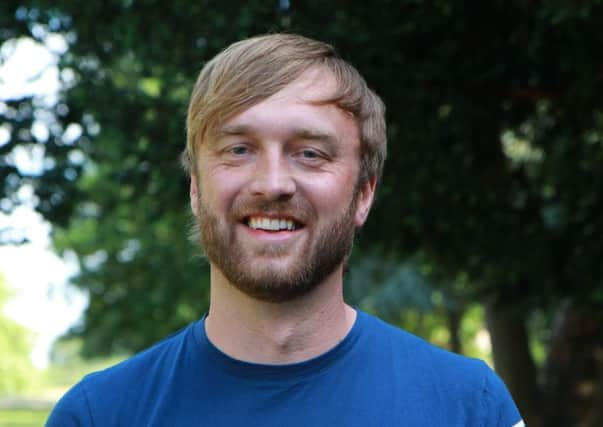Dr Stuart Weir: Women pay the price when men buy sex in all its forms


Buying women who are pimped for prostitution is one flagrant way of men demonstrating sexual violence against them. To understand that a financial transaction is all that is required to have full access to a woman, a fellow human being who does not truly want you, is to have arrived at the basest of mindsets.
It is no stretch at all to understand how businesses in Glasgow that hire women to dance provocatively for male audiences falls easily into the same category of the ‘sex industry’.
Advertisement
Hide AdAdvertisement
Hide AdThe licensing of lap dancing and similar Sexual Entertainment Venues is being questioned at the seat of Glasgow’s political power. As others have recently reported, many student women are putting themselves in these establishments, as the well-publicised ‘sex for rent’ trends compound. The economic pressures that young women face, and the subsequent dangers take place, because there is a demand from paying men who feel entitled to possess a woman’s body in some way.
Glasgow’s four lap dancing clubs (Edinburgh has three and Dundee, one) have operated on a straightforward alcohol licence, particularly since the Court of Session in 2011 ruled that lap dancing in no way forces a change to licensing an establishment selling alcohol.
Apparently, there is no link between the two activities. But things are changing in Glasgow as the city council rejected Spearhead Rhino’s application of an alcohol licence when it was discovered that at their then business on Drury Street the lap dancers had removed all their clothing and there was significant contact with customers. The line had been crossed due to a break with the licensing board’s code of conduct.
For quite some time the city of Glasgow has sought to clean up its act in all forms of commercial sexual exploitation, whether it be human trafficking, prostitution or other expressions of the sex industry, which now includes lap dancing. Glasgow City Council is now consulting with all key stakeholders and parties as to whether to ban all applications for lap dancing clubs.
Taking a brief look at the macro picture, it is unsurprising that this push is taking place as the Scottish Government, through its Equally Safe strategy, continually affirms that commercial sexual exploitation including both prostitution and lap dancing is violence against women. Many violence against women groups in Scottish local authorities are creating their own statements and policy stances about sexual entertainment as a form of violence against women.
There are clear benefits of Glasgow City Council pushing in this direction. Firstly, as a local authority, they will be able to work out the implications of Equally Safe for women in the specific context of Glasgow, something the Scottish Government could never do.
Secondly, as Scotland’s largest authority by population, if Glasgow were to become the first Scottish city to ban lap dancing establishments, it could be the example and encouragement all 31 other local authorities require to implement the same.
Edinburgh City Council would be once again put under the spotlight with their laissez-faire attitudes to violence against women in the guise of sexual entertainment. Often, precedents are the necessary release valve. Glasgow’s initial effort to ban sexual entertainment venues is to be lauded because it is taking the brave stance required to culturally adjust what men have historically assumed is their right.
Advertisement
Hide AdAdvertisement
Hide AdI hope the consultation turns into reality and, by so doing, Scotland’s largest city will begin to see a place that puts that special stamp on all our women, local or foreign. Such a move would be consistent with the great Christian belief that no human being should be treated as a commodity. People were created for purpose, not purchase.
Without doubt a society that is called ‘good’ will have earned its accolade by the ways it protects and honours its women. On the other hand, Glasgow’s invisible men, the buyers of sex and sexual entertainment, will learn at the hands of new norms that such behaviour is not befitting of Glaswegians anymore. If such transpires, we can say for sure: ‘People Make Glasgow’.
Dr Stuart Weir is national director of CARE for Scotland.